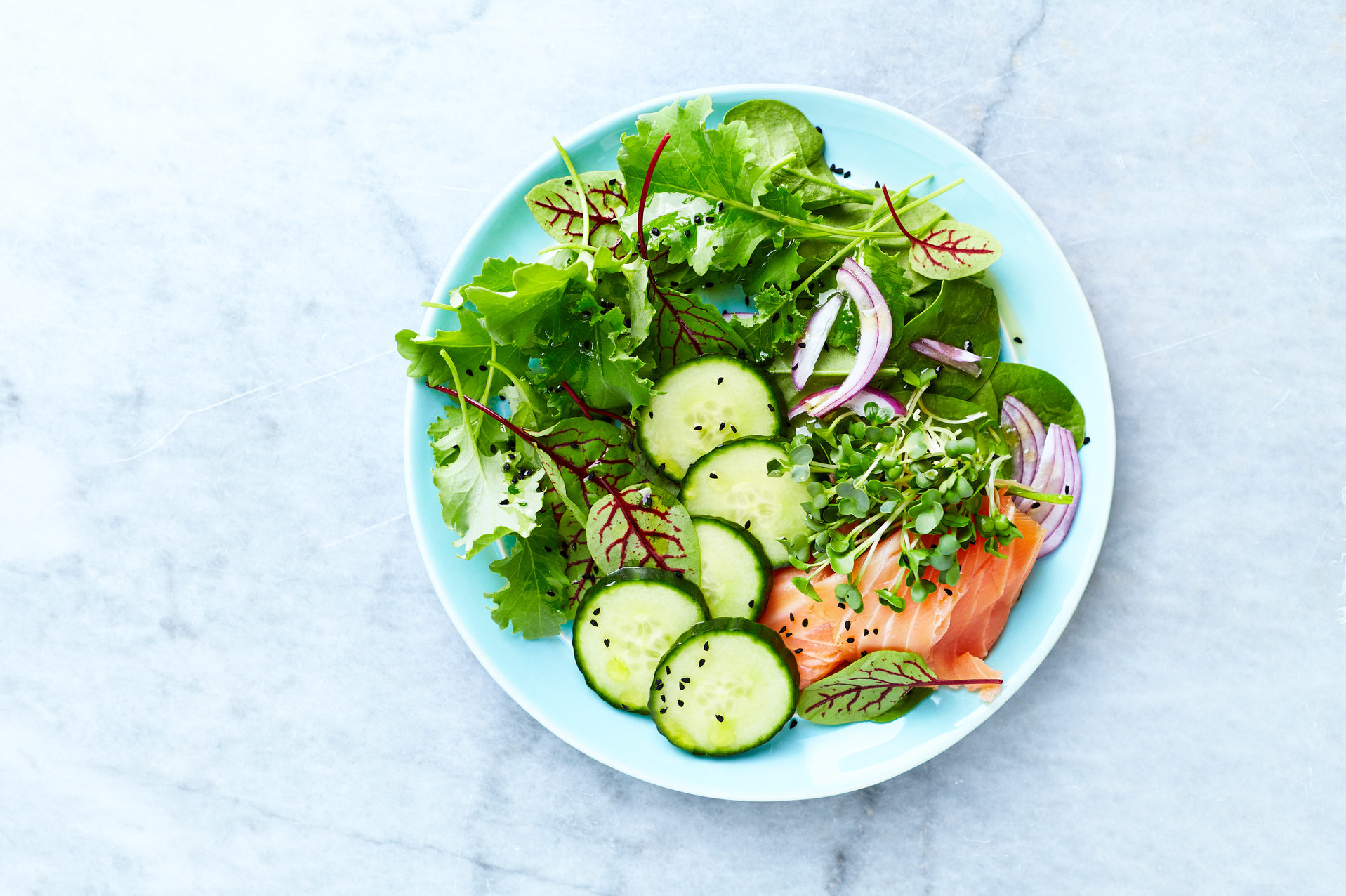Towards the beginning of the pandemic, my husband was heading to Trader Joe’s. Before he left, I snuck one more item onto the list… chocolate chips.
It had been years since I made chocolate chip cookies – just to eat the dough – but the idea of being cooped up in the house and avoiding social interaction for weeks stirred up that familiar desire for comfort food.
We all go through times when life just doesn’t feel normal. Perhaps that was due to social distancing requirements. But it also happens when you change jobs, get married, buy a home, or even celebrate the holidays.
When life circumstances and our normal routines change, it can lead to stress, anxiety, and worry. For many people, that’s a perfect storm that culminates in stress eating.
By taking a few proactive steps, it’s possible to maintain consistent healthy habits even when your life doesn’t look normal. This means that you’ll sail through that season of life feeling healthy, full of energy, and avoiding weight gain.
In my coaching work with clients, 5 steps tend to help them avoid giving in to stress eating. Follow these simple steps, and you’ll feel back in control of what you eat – even when you’re stressed or overwhelmed!
5 STEPS TO AVOID OVEREATING WHEN YOU’RE STRESSED
1. CREATE A DAILY ROUTINE
When your normal routines are shaken up, it becomes more important than ever to create structure within your day. For example, establish a consistent wake time, bedtime, work hours, and exercise routine.
It can be really helpful to set regular meal times as well. When you’re busy and out of your normal routine, you might find yourself not thinking about food for hours. Then, when you finally get around to eating, you feel ravenous and will eat anything in sight.
Having structure throughout your day and in your meal times will give you a sense of normalcy and help you stay consistent with healthy eating habits.
2. EAT HEALTHY, NUTRIENT-DENSE FOODS
During times of stress, you must nourish your body with the essential nutrients it needs. Drink plenty of water, include protein with your meals, add healthy fats to your food, and eat as many veggies and fruits as you can.
By nourishing your body with healthy foods, you’ll be more likely to maintain stable blood sugar levels. This means you’ll have more energy, feel calmer, and be better able to handle stress.
Even better, when you eat balanced meals, you tend to feel full and have fewer cravings, which makes it easier to avoid sugar and “junk” food.
I help clients cut out sugar and processed food in my 21 Day Clean Eating Reset. This program is so fun because so many of my clients notice that by following this advice, after just a week, their moods feel more stable, they’re better able to handle stress, and they’re happier overall… even though their external circumstances haven’t changed one bit.
3. DECIDE IN THE MORNING WHAT YOU WILL EAT DURING THE DAY
If you find yourself snacking, grazing, and stress eating, deciding what you will eat in advance is an amazing way to stop overeating in its tracks.
Here’s the truth: Decision fatigue is a real thing. Have you ever noticed after a long, stressful day that you’re less likely to make a healthy choice for supper? Or that you’re more likely to snack on chips and salsa after the kids go to bed?
After a long day of making many small decisions, our ability to make wise decisions deteriorates.
To counteract the effects of decision fatigue, decide in advance what you will eat for the day.
Here’s what this looks like. First thing in the morning, write out exactly what you will eat for the entire day. Be specific and include all of your meals and snacks. Also, make the plan realistic so that you’re likely to follow it. Which means if you need to add a square of dark chocolate after dinner, go ahead!
By deciding what you will eat in advance, you’ll have fewer decisions to make throughout the day, reducing your decision fatigue.
And when your decision tank is on empty, you won’t have to choose between a salad or going through a fast-food drive-thru – because you’ve already decided what you will eat.
The only way a daily meal plan works is if you commit to following it. It’s easy to think, “I’ll try to follow this plan and see how it goes.” Instead, go into this with the mindset that you will not make exceptions, and you’ll greatly increase your chance of success!
4. GET CURIOUS
Let’s be honest for a moment. Even though you wrote out your meal plan for the day, there will still be times when you want to eat something that’s not on your plan. It might be in a moment of frustration, at the end of a long day, or maybe just out of habit.
But now, instead of simply reaching for ice cream the moment you think you want it, pause and get curious.
Ask yourself, “I wonder why I want this food right now?” Or, “I wonder why I don’t want to follow my plan?”
Without any judgment towards yourself, notice what thoughts and feelings come up for you. Once you know why you want to eat when you’re stressed, you can create a plan to address those underlying thoughts and feelings.
5. BE PROACTIVE BY MANAGING YOUR STRESS
Many people wait until they’re at a breaking point before they do something to manage their stress. Instead of reaching that breaking point, take 5 minutes every day to do something that will help you proactively manage your stress levels.
For example, you may add in a simple deep breathing practice every morning, use a meditation app before bed, or spend a few minutes outside in nature.
By regularly taking time to manage stress, you’ll get your body out of fight-or-flight mode. Then, you’ll notice that you’re equipped to handle tough situations when they arise…without feeling overly “stressed out” and wanting to turn to food.
CONCLUSION
When life feels tough or circumstances change, it’s so important to take care of yourself.
It’s ok to give yourself time to deal with whatever life has thrown your way. But as soon as you’re ready, start taking action to maintain healthy habits.
These healthy habits will carry you through the difficult time, provide a sense of normalcy, and give you the energy you need to cope with your circumstances.
So tell me – which of the steps listed in this article are you going to try to break the habit of stress eating?



+ show Comments
- Hide Comments
Free Resources
Take A Look at the latest from ITN:
Courses
add a comment